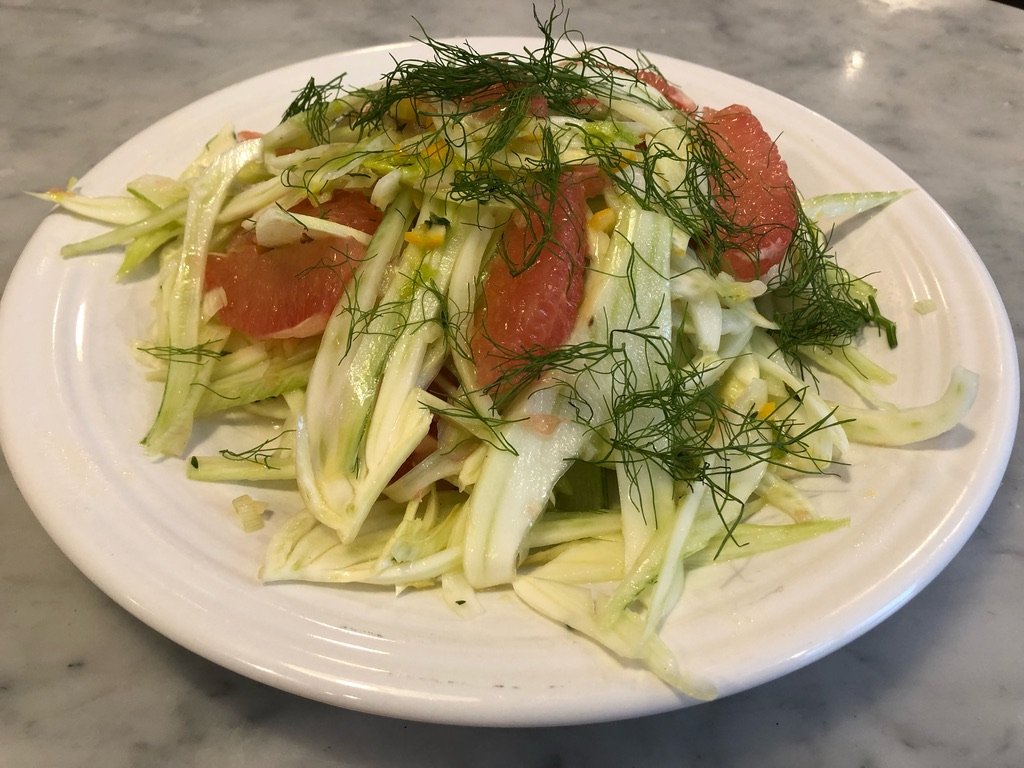Citrus and Rheumatoid Arthritis...Can An Orange a Day Keep the Pain Away?
Do oranges and other citrus fruits trigger rheumatoid arthritis (RA) flares? The citric acid in these winter fruits has been anecdotally identified as an RA trigger, however, there’s no reliable evidence that eliminating oranges from your menu will improve your RA symptoms. Doing so will only deprive you of vitamin C, which is necessary for maintaining the cartilage in your joints!
Eating a variety of fruits and vegetables is not only essential for an enjoyable meal, but is crucial for the prevention, therapeutic response, and remittance of inflammatory arthritis (1). Meal plans like the “Itis” diet formulated by Dr. Monica Guma from UCSD, which include daily servings of fruits, vegetables, and whole grains have been shown to reduce pain and inflammation in both rheumatoid arthritis and osteoarthritis patients. Fiber, minerals, and vitamins contribute to the benefit of this diet, but polyphenols, the bioactive compounds produced by plants which contribute to their color, are amongst the most important.
Polyphenols are plant-derived compounds with potent antioxidant and anti-inflammatory activity, and they are thought to play a significant pharmacologic role in improving arthritic symptoms (1). Among the many important polyphenols are curcumin derived from turmeric, EGCG, or the active component of green tea, as well as quercetin, and anthocyanins, which provide the pigments in berries and pomegranate. Less widely known is hesperidin, which is present in the juice, and more prominently in the rinds of citrus fruits. There is growing evidence that hesperidin may be useful in the treatment of many conditions, including inflammatory arthritis.
Hesperidin, a polyphenol more specifically known as a flavanone, is present in the white pith of citrus fruits as well as in quinoa and amaranth. Its effects have recently been studied in rheumatoid arthritis patients. In animal models of inflammatory arthritis, hesperidin lowered levels of inflammatory mediators including c-reactive protein, which waxes and wanes as RA activity does (2). In a 12-week randomized controlled trial of 19 patients with rheumatoid arthritis, hesperidin reduced both swollen joint counts and pain scores (3). It may have uses in other syndromes as well. Breast cancer studies suggest that it has anti-estrogenic properties and may be useful in survivorship (4). Additionally, the anti-viral activity of hesperidin may be helpful for the treatment of COVID-19, while its anti-inflammatory properties are hypothesized to control the potential for Covid 19-related cytokine storm (5).
A therapeutic dose of hesperidin is at least 1 gram daily. Drinking eight glasses of orange juice will yield this amount, but this is not advisable! However, because hesperidin is abundant in the rinds of citrus fruits, utilizing this part of the fruit in your cooking yields much more of this active polyphenol. One teaspoon of orange rind contains approximately 1.5 g of hesperidin, if the white pith is eaten as well as the colored exterior.
Citrus rinds are frequently incorporated into Asian and Middle Eastern cooking. Dried tangerine peel is used to complement the flavors of savory meals including beef and chicken in Chinese cuisine, and preserved lemon peel plays prominently into many Moroccan dishes. An easy way to include citrus peel in your cooking is to use it in a vinaigrette. The following recipe uses a whole Meyer lemon, which is a cross between a lemon and a mandarin orange, to flavor the vinaigrette which is then tossed with flavorful winter fennel and grapefruit for a refreshing, citrus salad.
Kitchen-Prescription Recipe: Grapefruit Fennel Salad with Whole Citrus Vinaigrette
Ingredients:
One organic Meyer lemon, washed and dried
One medium shallot
1/2 cup extra-virgin olive oil
One heaping teaspoon of chopped, fresh thyme leaves
One teaspoon of honey
One teaspoon of sea salt
Two large bulbs of fennel, feathery fronds reserved
Two pink grapefruit
Slice the stem end off of the Meyer lemon, and then cut it in half. Using a citrus press, squeeze the juice from both lemon halves into a glass measuring cup. You will get approximately 1/4 cup of juice. Thinly slice the remaining pulp and outer shell of the lemon, and then dice finely. Peel the shallot, cut it in half lengthwise, and finally chop as well. Rinse the chopped shallot in cool water, drain, and add to the lemon juice along with the chopped lemon rind. Mix in the thyme leaves, honey, extra-virgin olive oil, sea salt, and whisk to combine. A thick, emulsified vinaigrette will be the result.
Remove the thick stalks from the tops of the fennel bulbs, and slice the fennel in half lengthwise. Using a mandolin or a sharp knife, shave the fennel into thin slices. (This can also be done on a box grater or in a food processor.) Cut off the top and bottom of the grapefruits, and, using a paring knife, slice between the membranes to release the individual grapefruit segments.
In a large bowl, combine the sliced fennel, grapefruit segments, and 3 tablespoons of the whole citrus vinaigrette. Season lightly with sea salt, and gently mix to combine. Top with the reserved fennel fronds.
Medical Mentions:
Grapefruit can interact with certain drugs including those taken to treat high cholesterol, high blood pressure, infections, and heart problems, so omit the grapefruit from this recipe if you are taking these medications.
When using whole citrus fruits in recipes, source organic oranges, lemons, and limes as the herbicides are not easily removed from the rind.
References:
Bañuls-Mirete M, Ogdie A, Guma M. Micronutrients: Essential Treatment for Inflammatory Arthritis? Curr Rheumatol Rep. 2020 Oct 26;22(12):87. doi: 10.1007/s11926-020-00962-z. PMID: 33104882; PMCID: PMC8078476.
Ahmad S, Alam K, Hossain MM, Fatima M, Firdaus F, Zafeer MF, Arif Z, Ahmed M, Nafees KA. Anti-arthritogenic and cardioprotective action of hesperidin and daidzein in collagen-induced rheumatoid arthritis. Mol Cell Biochem. 2016 Dec;423(1-2):115-127. doi: 10.1007/s11010-016-2830-y. Epub 2016 Oct 4. PMID: 27704466.
Umar S, Kumar A, Sajad M, Zargan J, Ansari M, Ahmad S, Katiyar CK, Khan HA. Hesperidin inhibits collagen-induced arthritis possibly through suppression of free radical load and reduction in neutrophil activation and infiltration. Rheumatol Int. 2013 Mar;33(3):657-63. doi: 10.1007/s00296-012-2430-4. Epub 2012 Apr 11. PMID: 22527139.
El-Kersh, D.M., Ezzat, S.M., Salama, M.M. et al. Anti-estrogenic and anti-aromatase activities of citrus peels major compounds in breast cancer. Sci Rep 11, 7121 (2021). https://doi.org/10.1038/s41598-021-86599-z
Haggag YA, El-Ashmawy NE, Okasha KM. Is hesperidin essential for prophylaxis and treatment of COVID-19 Infection?. Med Hypotheses. 2020;144:109957. doi:10.1016/j.mehy.2020.109957


